Government notifies Legal Metrology (Packaged Commodities) Amendment Rules, 2017
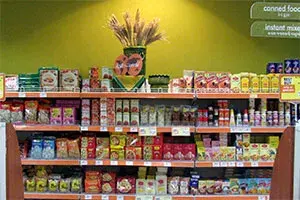 Recently, the Ministry of Consumer Affairs took another step in the direction of protecting consumers’ interests by notifying an amendment to the Legal Metrology (Packaged Commodities) Rules, 2011. The stated amendment will come into force from January 1, 2018.
Recently, the Ministry of Consumer Affairs took another step in the direction of protecting consumers’ interests by notifying an amendment to the Legal Metrology (Packaged Commodities) Rules, 2011. The stated amendment will come into force from January 1, 2018.
Indian Government Defers Implementation of TCS, TDS under GST- provides Temporary Relief to E-Commerce Operators and their Suppliers
 E-commerce Operators and their suppliers have been granted a welcome relief by the Central Government with the Ministry of Finance issuing a public statement on June 26, 2017 through which it has been announced that the implementation of provisions of Sections 51 and 52 of the Central Goods and Services Tax and State Goods and Services Tax has been postponed. This postponement in implementation gives E-Commerce Operators and their suppliers time to prepare for this major tax reform.
E-commerce Operators and their suppliers have been granted a welcome relief by the Central Government with the Ministry of Finance issuing a public statement on June 26, 2017 through which it has been announced that the implementation of provisions of Sections 51 and 52 of the Central Goods and Services Tax and State Goods and Services Tax has been postponed. This postponement in implementation gives E-Commerce Operators and their suppliers time to prepare for this major tax reform.
Anti- Profiteering Rules, 2017: Permeating Benefits of the GST Regime
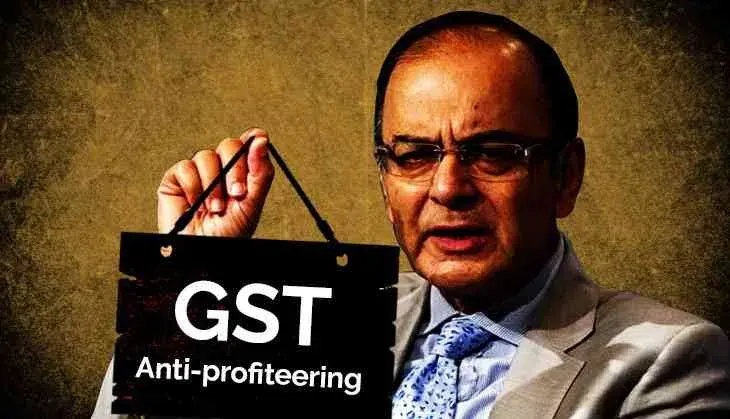 The Anti Profiteering Rules, 2017 (Rules) were recently notified by the Central Government in exercise of its powers under section 164 read with section 171 of the Central Goods and Services Tax Act, 2017.
The Anti Profiteering Rules, 2017 (Rules) were recently notified by the Central Government in exercise of its powers under section 164 read with section 171 of the Central Goods and Services Tax Act, 2017.
FSSAI to Issue Guidelines on Disclosure of GM Content on Food Labels
Food Safety and Standards Authority of India (hereinafter referred to as “FSSAI”) is responsible for regulating genetically modified (hereinafter referred to as “GM”) food products. GM food products mean food and food ingredients composed of genetically modified or engineered organisms obtained through modern biotechnology, or food and food ingredients produced from but not containing genetically modified or engineered organisms obtained through modern biotechnology.
Guidelines on Import of Food under FSSAI
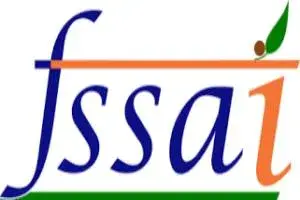 Various food products are imported in India from different countries. To ensure safe imported food is made available to consumers, Authorised Officers are appointed by the Food Safety and Standards Authority of India (hereinafter referred to as “FSSAI”) to check the imported food articles at various ports. Importers of food have to comply with various norms to make sure the imported food gets clearance.
Various food products are imported in India from different countries. To ensure safe imported food is made available to consumers, Authorised Officers are appointed by the Food Safety and Standards Authority of India (hereinafter referred to as “FSSAI”) to check the imported food articles at various ports. Importers of food have to comply with various norms to make sure the imported food gets clearance.
Government notifies Legal Metrology (Packaged Commodities) Amendment Rules, 2017
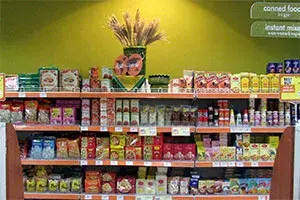
Source: https://factly.in/
Recently, the Ministry of Consumer Affairs took another step in the direction of protecting consumers’ interests by notifying an amendment to the Legal Metrology (Packaged Commodities) Rules, 2011. The stated amendment will come into force from January 1, 2018.
On June 29, 2017, Shri Ram Vilas Paswan, the Minister of Consumer Affairs, Food and Public Distribution (hereinafter referred to as ‘The Ministry of Consumer Affairs), approved the amendments to the Legal Metrology (Packaged Commodities) Rules, 2011. As reported by the Press Information Bureau’s website, after a detailed stakeholder consultation, the Ministry of Consumer Affairs sought to enhance the protection offered to the consumers while balancing the requirement of ease of doing business and subsequently introduced an amendment to the aforesaid Rules. A brief outline of the said amendments are provided below:
- Goods displayed by the seller on e-commerce platform shall contain declarations required under the Rules like name & address of the manufacturer, packer and importer, name of the commodity, net content, retail sale price, grievance redressal system, etc.
- Specific mention is made in the rules that no person shall declare different MRPs (dual MRP) on an identical pre-packaged commodity, unless allowed under any law. Understandably, this will have a huge impact on the consumers, retailers and manufacturers, considering that subsequent to these amendments coming into effect, no institution would be able to overcharge for any commodity, or sell products wherein a higher MRP is mentioned on it.
- Size of letters and numerals for making declaration is increased, so that consumer can easily read the same.
- The net quantity checking has adopted a more scientific approach, with introduction of e-coding.
- Bar Code/QR Coding is allowed on voluntarily basis.
- Provisions regarding declarations on Food Products have been harmonized with labelling regulations under the Food Safety & Standards Act, 2006.
- Medical Devices such as stent, valve, orthopedic implants, syringe, and tools for operations, pharmaceutical drugs etc. shall now fall under the ambit of pre-packaged commodities as defined under the Legal Metrology (Packaged Commodities) Rules, 2011. Therefore, they shall have to adhere by the provisions of the said rules. Reportedly, consumers at large were facing difficulty as prices of devices were sold according to the paying capacity of the consumer. Even after capping of MRP many companies were not displaying the same on the product. Keeping the said aspect in mind, as well as the fact that all other declarations described in the Rules can only benefit the customer, these objects shall be required to print all such declarations as required under law.
- The definition of Institutional Consumer has been changed to prevent any scope for commercial transactions/retail sale of commodities sourced by the institution for their own use.
Indian Government Defers Implementation of TCS, TDS under GST- provides Temporary Relief to E-Commerce Operators and their Suppliers

Source: www.ejinsight.com
E-commerce Operators and their suppliers have been granted a welcome relief by the Central Government with the Ministry of Finance issuing a public statement on June 26, 2017[1] through which it has been announced that the implementation of provisions of Sections 51 and 52 of the Central Goods and Services Tax and State Goods and Services Tax has been postponed. This postponement in implementation gives E-Commerce Operators and their suppliers time to prepare for this major tax reform.
Who is an E-Commerce Operator?
Section 2(45) of the Central Goods and Services Tax Act, 2017 (hereinafter referred to as “CGST”) defines the term “electronic commerce operator” to mean any person who owns, operates or manages digital or electronic facility or platform for electronic commerce.
Parties Mandatorily Required to Register under GST
Any supplier who carries on any business at any place in India and whose aggregate turnover exceeds threshold limit as prescribed for a Financial Year is liable to get himself registered. If the annual turnover of a person in a given financial year exceeds INR 20 lakhs (INR 10 lakhs for Special category states), such persons are liable to register. The special states are Arunachal Pradesh, Assam, Jammu and Kashmir, Manipur, Meghalaya, Mizoram, Nagaland, Sikkim, Tripura, Himachal Pradesh and Uttarakhand.
However, certain categories of persons mentioned in Section 24 of the CGST are liable to be registered irrespective of this threshold. It is pertinent to mention that persons who supply goods and/or services through electronic commerce operator and every electronic commerce operator are mandatorily required to register.
Tax Deductible at Source (TDS)
Section 51 of the CGST provides that such entities that may be notified by the Government are required to collect Tax Deducted at Source at one per cent on payments to suppliers to goods or services in excess of INR 2.5 lakhs.
This basically means that tax would be deducted @1% of the payment made to the supplier of taxable goods or services or both, where the total value of such supply, under a contract, exceeds INR 2,50,000/-. It is important to note that the total value of such supply excludes the amount of Central tax, State tax, Union Territory tax, Integrated tax and cess indicated in the invoice.
Another important point to be kept in mind is that even though individual supplies may be less than INR 2,50,000/-, if the contract value is more than INR 2,50,000/-, TDS will have to be deducted. However, no deduction shall be made if the location of the supplier and the place of supply is in a State or Union territory, which is different from the State or Union Territory, as the case may be, of registration of the recipient.
Tax Collectible at Source (TCS)
While TCS has several similarities with TDS, it has certain distinctive features as well. TDS refers to the tax which is deducted when the recipient of goods or services makes some payments under a contract etc. while TCS refers to the tax which is collected by the electronic commerce operator when a supplier supplies some goods or services through its portal and the payment for that supply is collected by the electronic commerce operator
Under Section 52 of CGST, the Government has placed the responsibility on E-Commerce Operators to collect the ‘tax’ at a rate of 1% from the supplier. The E-Commerce Operator shall collect the tax by paying the supplier, the price of the product/services, less the tax, calculated at the rate of 1%. The tax to be collected will be calculated on the net value of the goods/services supplied through the portal of the Operator.
Conclusion
The move to delay implementation of the provisions of Section 51 and 52 of the CGST will provide some relief to small businesses with a turnover less than INR 20 lakhs (INR 10 lakhs for Special category states) that are required to register with the GST portal for selling goods or services through e-commerce operators. However, the relief is temporary in nature as the liability to deduct or collect tax will arise from the date when the respective sections are brought in force and such persons will have to undergo the registration process.
[1]http://pib.nic.in/newsite/mbErel.aspx?relid=166896
[2]http://www.cbec.gov.in/resources//htdocs-cbec/gst/eflier-TDS-mechanism21062017.pdf
[3]http://www.cbec.gov.in/resources//htdocs-cbec/gst/eflier-TCS-mechanism22062017.pdf
Anti- Profiteering Rules, 2017: Permeating Benefits of the GST Regime
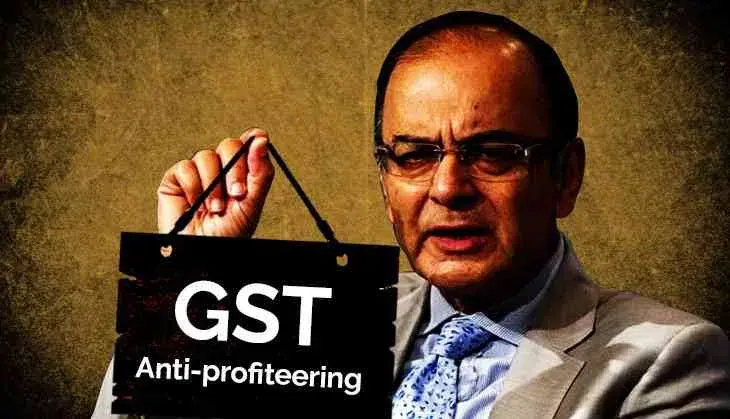
Source :www.catchnews.com
The Anti Profiteering Rules, 2017 (Rules) were recently notified by the Central Government in exercise of its powers under section 164 read with section 171 of the Central Goods and Services Tax Act, 2017. Herein, as enumerated in Section 171 of the GST Act, any reduction in rate of tax on any supply of goods or services or the benefit of input tax credit shall be passed on to the recipient by way of commensurate reduction in prices. These Rules have been however touted as ‘draconian’ by many that threatens businesses with cancellation of registration if they are found guilty of profiteering.
Purpose of the Anti – Profiteering Rules, 2017 (“Rules”)
As under Rule 7, businesses will have to pass on the benefits of GST to consumers, failing which if they are found guilty of profiteering, their registration may be revoked.
Further, the Authorities will determine if the benefits have been duly passed on to the recipient and at the same time ensure to recover the amount not returned if the eligible recipient does not claim such return or if the recipient cannot be identified. The standing committee and screening committee are responsible to affirm if any interested party has a claim.
Summary of the Rules
As under these Rules, the constitution of a National Anti-Profiteering Authority, Standing Committee, and a state level Screening Committee is duly enumerated. The Authority will have the power to determine the method and procedure for determining the reduction in rate of tax on supply of goods/ services or benefit of input tax credit has been passed on by the registered person to the recipient by way of commensurate reduction in prices. Hereunder, it is the duty of the Authority, under these Rules to determine whether benefits have been passed to the recipient.
Since the Standing Committee has the onus to identify if the supplier hasn’t passed benefits to the recipient; in such case, the committee shall refer the matter to the Director General of Safeguards for investigation. The Director General will have to notify the interested parties under these Rules regarding initiation of any investigation proceeding.
Further, the Director General shall complete the investigation process within a period of 3 months from the date of receipt of reference from the standing committee. The same may get extended not beyond a further period of 3 months.
As under these Rules, the Director General of Safeguards may seek opinion of any other agency or statutory authority in discharge of his duties. The Director General is also vested with the powers to issue summons for any person whose attendance may be necessary to any proceeding. These enquiry proceedings will be treated as judicial proceedings under the Indian Penal Code. The Authority within the period of 3 months of receipt of Director General’s report, determine whether benefit should be passed to the recipients or not.
As enumerated under these Rules, orders passed by the authority shall be immediately complied with by the registered person, failing which action may be taken to recover the amount that was so payable to the recipients. Therefore, a lot of businesses and analysts have raised their concern over this draconian spot emphasized under the GST command.
The Authority has been provisioned to be in existence for two years unless the GST Council extends the tenure.
To Sum it up
These Rules lay down a 3-step procedure to determine the culpability of an entity. Any compliant received against an entity will be verified by the standing committee, the findings of the committee will be investigated upon by the Director General of Safeguards. The Authority will give its final decision based on the Director General’s Letter. The quantum of punishment, if any, will be decided by the authority.
Therefore, it may be noted that every business registered under GST will fall under the purview of these Rules if any recipient of benefits makes a claim or compliant against the registered business pertaining to non-transfer of benefits under GST.
FSSAI to Issue Guidelines on Disclosure of GM Content on Food Labels
Food Safety and Standards Authority of India (hereinafter referred to as “FSSAI”) is responsible for regulating genetically modified (hereinafter referred to as “GM”) food products. GM food products mean food and food ingredients composed of genetically modified or engineered organisms obtained through modern biotechnology, or food and food ingredients produced from but not containing genetically modified or engineered organisms obtained through modern biotechnology
On July 5, 2012, the Ministry of Consumer Affairs, Food and Public Distribution (Department Of Consumer Affairs) had issued notification G.S.R. 427(E) which stated that “Every package containing the genetically modified food shall bear at the top of its principal display panel the words ‘GM’”. This notification came into effect from January, 2013 and thus, allowed consumers to make an informed choice on whether packaged foods that they purchase contain any GM content.
In furtherance of this, India’s apex food regulator, FSSAI is currently working to establish guidelines for labelling of GM goods, wherein Food Business Operators (FBOs) have to disclose details of GM ingredients used on the labels of processed food. This step by FSSAI is envisaged to be a step forward in creating awareness among consumers as now consumers, in addition to being aware on whether their food contains GM content, will also be apprised of the details of GM content in their food. However, such awareness will only be prevalent among consumers of packaged foods as a large segment of the Indian population purchase food in loose and unpackaged forms. Majority of food consumed in India is in unpackaged form.
However, once the guidelines on labelling of GM food products are published, manufactures of packaged food have to disclose details of GM ingredients used on the labels of processed food. Further, not only manufacturers but also importers of GM food products have to specify the GM content on the labels. Import of GM food products requires prior approval of the Genetic Engineering Approval Committee (GEAC) constituted by the Ministry of Environment Forest and Climate Change and therefore, importers of GM food products have to abide by the labelling guidelines of GM food products in order to get clearance from GEAC.
The guidelines on disclosure of GM content on food labels are under the process of being drafted. We shall provide you with further information once the guidelines are published.
Guidelines on Import of Food under FSSAI
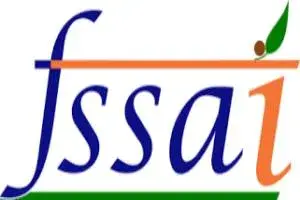
Source: www.fssai.gov.in
Introduction
Various food products are imported in India from different countries. To ensure safe imported food is made available to consumers, Authorised Officers are appointed by the Food Safety and Standards Authority of India (hereinafter referred to as “FSSAI”) to check the imported food articles at various ports. Importers of food have to comply with various norms to make sure the imported food gets clearance.
Primarily, section 25 of the Food Safety and Standards Act, 2006 contains provisions relating to import of food articles in India and states that
“No person shall import into India –
- any unsafe or misbranded or sub-standard food or food containing extraneous matter;
- any article of food for the import of which a licence is required under any Act or rules or regulations, except in accordance with the conditions of the licence; and
- any article of food in contravention of any other provision of this Act or of any rule or regulation made thereunder or any other Act.”
Further, for the purpose of streamlining the process of clearance of food in an efficient and transparent manner, the FSSAI has notified the Food Safety and Standards (Import) Regulations, 2017 on March 9, 2017 laying down provisions for import of food in India and packaging and labelling of such imported food items. Various provisions that are contained in the Food Safety and Standards (Import) Regulations, 2017 are as follows:
- License/Registration required for import of food
- All food importers have to possess an Import Export Code to import food into India.
- Food importers have to get registered with the Director General of Foreign Trade.
- Food importers have to obtain an import license from the Central Licensing Authority in accordance with the provisions of the Food Safety and Standards (Licensing and Registration of Food Businesses) Regulations, 2011.
- Shelf Life of Imported Food
Shelf life of a food article is the period between the date of manufacture of such food and the “Best Before” or “Date of expiry”, whichever is earlier, as printed on the label. Only food articles which have a valid shelf life of not less than 60% at the time of import of such food will be cleared by customs.If imported food articles have shelf life of less than 7 days, the importer has to submit application for issuance of provisional no-objection certificate to the customs. Thereafter, the Authorised Officer[1] shall communicate to the customs along with no-objection certificate if the food articles conform to the required standard. - Packaging and Labelling of Imported Food
All imported food have to be packaged and labelled in accordance with Labeling and Packaging Regulations, 2011. Also, the following compliances the Food Safety and Standards (Import) Regulations, 2017 are to be adhered to:
- All food articles are to be transported or stored in optimal storage conditions of temperature and hygiene, packaged and labeled as per regulations applicable to that particular article of food.
- In case multiple foods or foods falling under different categories are packed in a single container or carton or pallet or skid, then the foods are to be packed in such a manner that they are accessible for inspection and sampling.
- Food importers may make rectification on the labels of imported food articles only in respect of the following information:
- Name and address of the importer
- Logo and license number of Food Safety and Standards Authority of India
- Non-veg or Veg Logo
- Category or sub-category along with generic name, nature and composition for proprietory food
- Such rectification may be made at the custom bound warehouse by affixing a single non-detachable sticker or by any other non-detachable method next to the principal display panel. Upon rectification, an inspection will be conducted by the Authorised Officer and if he is satisfied, may draw two samples. If the food importer fails to rectify the permissible defects, the Authorised Officer shall refuse clearance of such imported food imported articles by issuing a non-conformance certificate.
- If the Authorised Officer is satisfied that the Food Importer has complied with the provisions of Labeling and Packaging Regulations, 2011 and have valid balance shelf life, the Authorised Officer or his representatives shall draw two parts of food sample from the imported articles of food in the customs area in the presence of Food Importer or his Custom House Agent for testing the samples. Consignment of food articles which do not comply with the provisions of Labeling and Packaging Regulations, 2011 at the visual inspection will be rejected and no sample shall be drawn from such consignment.
- The samples drawn will be sealed and the label of the sealed sample of imported articles of food shall bear the following information:
- Code number of the sample;
- Date and place of collection;
- quantity of sample;
- Name of articles of food and category as per the Food Safety and Standards (Food Product Standards and Food Additives) Regulations-2011.
- Name and quantity of preservative added while drawing the sample, if any;
- Name and signature of the Food Importer or his Custom House Agent and;
- Name and signature of the sender with official seal.
- One part of the sealed and labelled sample shall be forwarded to the food analyst and the other part shall be stored by the Authorised Officer or his representative. The food analyst shall analyse such sample and intimate to Authorised Officer whether such food is conforming or non-conforming.
- If the food articles satisfy all necessary provisions and are eligible for import, the Authorised Officer shall issue a ‘no-objection certificate’ to the food importer permitting the import of such food. The no-objection certificate is valid for 30 days from receipt by the importer within which the food importer has to take out the food article from the customs area.
- If the food article are not to be cleared for import, then the Authorised Officer shall issue ‘non-conformance’ report to the food importer specifying the grounds of refusal of import.
The Food Safety and Standards (Import) Regulations, 2017 provide for a risk based framework under which FSSAI may review risks associated with articles of food imports from time to time, besides adopting a risk based inspection process. Steps that may be taken in furtherance to the risk based framework by FSSAI include identification of laboratories in exporting countries for prior testing of food samples before the articles of food are imported into India and entering into entering into a memoranda of understanding with relevant agencies in exporting countries for accelerated clearance of food imports from the countries to facilitate ease of doing business. FSSAI may issue food alert notifications, including time bound prohibition on articles of food or prohibiting source or recalls, based on the risk associated with the articles of food.
Takeaway:
The Food Safety and Standards (Import) Regulations, 2017 thus lays down a comprehensive procedure for clearance of imported food products into India, and at the same time ensures a procedure for effective inspection and analysis of food articles to ensure that health of consumers is not compromised.
[1]Authorised Officer is a person appointed by the Chief Executive Officer of the Food Safety and Standards Authority of India to perform functions related o food imports.


